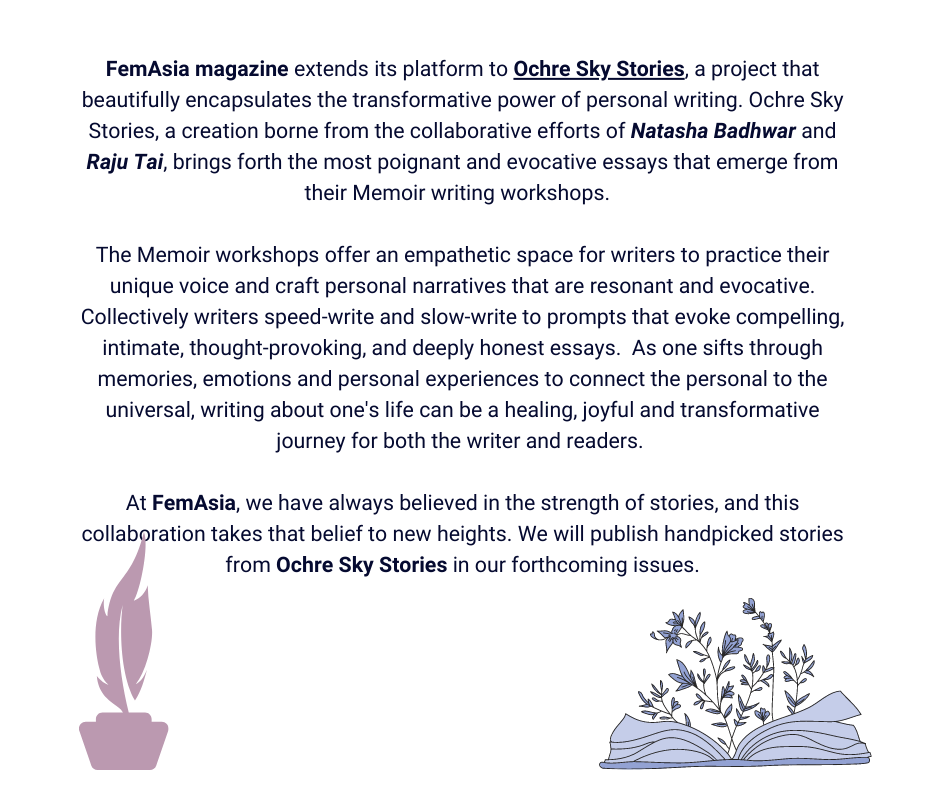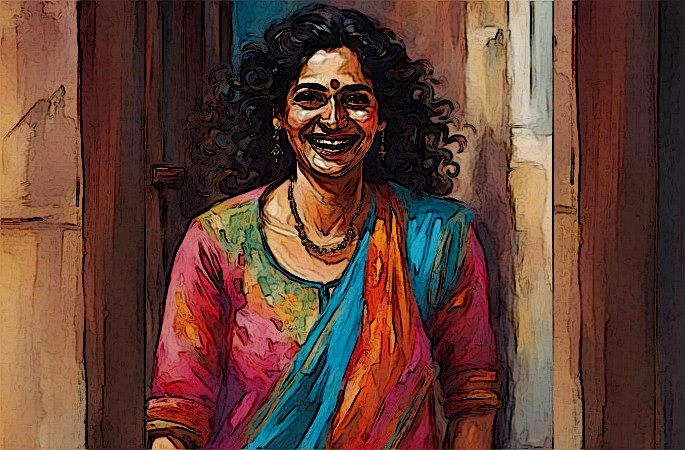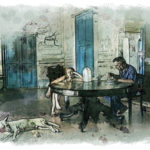…and learning from her. A meditation on love, loss and healing
Minu Tai and I were given two vastly different lives to live. I’m not adding a photograph of Minu Tai to this essay — so here’s a description — an agile woman in her late forties, in bright-coloured cotton kurtas and leggings, so fond of giggling, that several of her beautiful teeth pop out of her smile, her curly hair bunched up like grapes, bouncing as she walked around the house.
She was the oldest of all cousins, and I was the youngest. I got to do a Masters’s degree from a major institute, Minu Tai barely completed 12th grade. Minu Tai was ‘married off’ soon after she turned 18, whereas I face no such pressure even at 31. Though we were just a little branch apart on the family tree, our youth was shaped and coloured so differently.
She was already married the year I was born. Her first daughter was born a year after that. When I was a child, I didn’t know whose daughter she was. Other cousins came with their respective parents to family gatherings, but Minu Tai came with her husband.
Her husband was an alcoholic since his teenage. The alliance was pushed onto Minu Tai by a middlewoman who hid this fact.
Minu Tai was stuck, with no job, and no degree to get one. She gave birth to a second daughter. She survived the financial cost of his addiction by making meals for outstation students in the city. She distributed the meals by cycling around, the steel dabbas jangling in tow.
She survived hundreds of nights with a drunk man, protected her daughters, and handled a joint family full of alcoholic people and enablers of addiction. She tried whatever she could to help him de-addict. Nothing worked. She tolerated everything. Until she didn’t. Until she packed her bag and came to her mother’s place for good.
My atya (paternal aunt) lived next door, so I, a shy teenager got to see this protest of hers. I became her youngest cheerleader, and years before I knew the word feminism, I felt solidarity, rage, and compassion coursing through my veins.
My Baba employed her in his organization. You could call it nepotism, and you wouldn’t be wrong. She called it her second life. By assisting Aai in work, and making spicy curries for Baba in the evening, she became our eldest sister, being available for our parents in ways I and my sister weren’t.
Minu Tai worked hard. She spoke with her best friend every night and woke up early the next day to do yoga. She gained the weight she had lost in her marital home. She earned money and a sense of independence. We were happy to witness this.
In all of this, she lost her relationship with her daughters. They blamed her for leaving their father. She would still celebrate their birthdays in some way every year. She turned her motherly energy towards her nieces and nephews. She didn’t show her losses as much as she showed her gains, inspiring others to find their own second chapters.
During the lockdown, she was in charge of breakfast, and she made cheelaafter cheela for us. She learned how to make Maggi Masala powder at home from a YouTube video, then whole wheat mathris, and made me taste it all. I would happily give her my feedback, mostly rocking the ‘👌’ gesture with ‘mmm..’ sounds. When I made the occasional Paneer gravy, she would be glad to be at the receiving end of yumminess. If she liked it, she made it a point to let me know.
Last Diwali, we walked together to an uncle’s place. She had a significant spring in her step. Before I could ask, she showed me pictures of a plump-faced, curious-eyed baby. “She’s my daughter’s daughter,” Minu Tai told me, her voice laced with pickled love, love that finally has a receiver.
Her younger daughter reached out to her last year. They reconnected over WhatsApp video calls.
After Diwali, they stayed together for a few days at my atya’s place – the four generations of women.
If you ask me to list the most important people in my life, I will forget to add Minu Tai. But when I found out that she had suffered a stroke of some kind and was in the ICU, my body informed me how much she matters.
The heaviness I felt, the way I halted everything else, just to shake my head with “why is this happening? hasn’t she had enough?”, and the shortness of breath at the possibility of losing her — these sensations helped me realize how slyly she had entered my sense of family, how we had become friends, how much I enjoyed her presence because it was the presence of someone who chose dignity again and again.
She was dealt such awful cards, but she played the game of life with joy and grace, because what else is a better option? Never self-pity, never victimization, never resentful comparison with others. All Minu Tai wanted was to keep laughing, to wear sleeveless blouses (though she had to worry, even in her late forties, of whether her mother would approve), and to grow her entrepreneurial skills.
Don’t get me wrong, I didn’t sit and admire her every day. She annoyed me as all cousins are supposed to, by the law of nature. I remember the day she added sambhar (coriander leaves) to my sambar (the tangy South Indian stew) because it made complete sense to her. I was massively annoyed at her for ruining my “authentic” sambar recipe.
So when I was informed that Minu Tai may not survive, I wondered at the crazy game of life —
- how we secretly love to be annoyed by loving people
- how someone has to leave the world just when the world was finally cooperating with them
- how the queue of death is not lined up age-wise
- how I didn’t buy the mango pickle she made and sold, because I was “confused” about how much to get and thought I’ll buy it next summer
Minu Tai passed away earlier this year.
In the first few weeks afterwards, I was either sad or suddenly very energetic, as if paying tribute to Minu Tai. Waves of disbelief and acceptance alternate at the shore of the grief-stricken body, the heart is amused – it wants to love and love and love everyone despite the violent truth of death. And the mind can grapple only by writing things down.
Minu Tai was humble enough to learn two kinds of journaling from her youngest cousin. I am eager to learn her discipline and resilience, her putting the best foot forward, and the best food forward, whatever life was doing.
I rooted for her since the day she came back from her hell.
I’m grateful for the years we got together. I love her spirit and her spirit lives on.

Raju Tai co-facilitates Ochre Sky Ochre Sky Memoir writing workshops with Natasha Badhwar.



